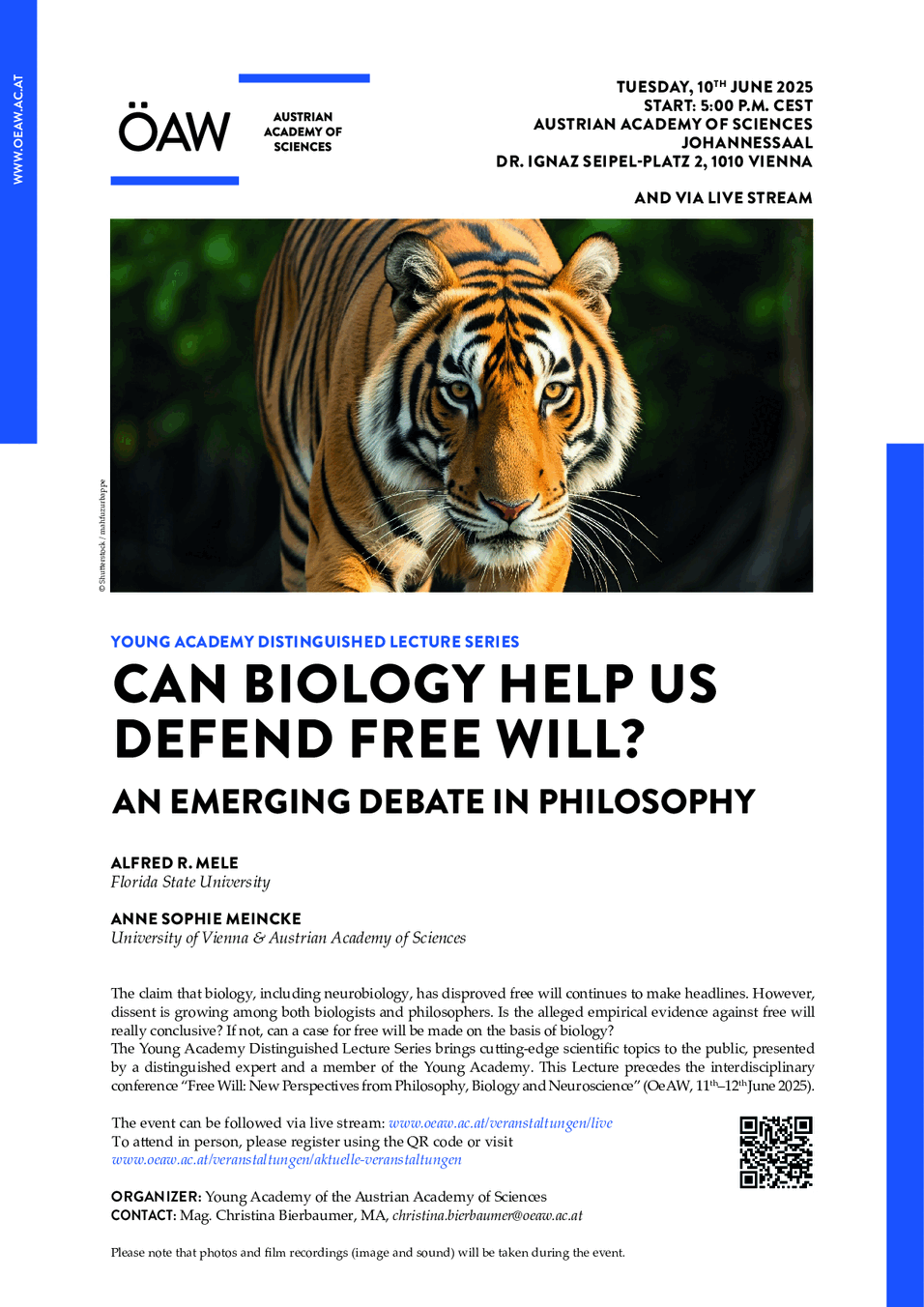Venue:
Austrian Academy of Sciences, Johannessaal, Dr. Ignaz Seipel
Platz 2, 1010 Vienna, Austria, and online
Organiser:
Dr. Anne Sophie Meincke (University of Vienna & Young
Academy of the Austrian Academy of Sciences)
Description:
Humans - members of the biological species homo sapiens - are
products of evolution. Therefore, if we have free will, it is
plausible to assume that our free will is also a product of
evolution. But do we actually have free will? Is it - at least
sometimes - up to us what we decide to do? Strikingly,
philosophers have long ignored biology when it comes to answering
these questions. Instead, they have quibbled about whether and how
free will might fit into a supposedly deterministic universe as
studied by (classical) physics. Only recently has the debate about
free will begun to open up to biological considerations - so far,
however, mostly with sceptical results. We are told that it is not
we but our brains that decide what we want and how we act, or that
our genes determine our decisions, or other biological factors
beyond our control.
In this Young Academy Distinguished Lecture, Alfred R. Mele,
Professor of Philosophy at Florida State University, and Anne Sophie
Meincke, member of the Young Academy and philosopher at the
University of Vienna, will take an overdue fresh look at the
relationship between free will and biology: Can biology help us
understand and perhaps even defend free will? If so, how? If not,
why not? To make progress here, it is necessary to critically
analyse the arguments put forward against free will in the name of
biology. Do these sceptical arguments really show what they claim to
show? If not, then there is room to explore what constructive role
biology could play in an attempt to defend free will against
scepticism. Perhaps the common conception of a biological organism
as some kind of deterministic machine is not accurate after all? How
should we understand organisms instead? What biological function
could free will serve? Taking evolution seriously also suggests
considering the possibility that free will may not be a privilege of
human organisms.
First Lecture:
Alfred R. Mele: "Free Will and Neurobiology"
Second Lecture:
Anne Sophie Meincke: "Free Will Is Real and Biology
Helps Us Understand Why"
The Young Academy Distinguished Lecture Series brings cutting-edge
scientific topics to the public, presented by distinguished experts
and members of the Young Academy. The present two lectures kick off
the interdisciplinary conference "Free Will: New Perspectives from
Philosophy, Biology and Neuroscience", organised by Anne Sophie
Meincke and taking place at the Austrian Academy of Sciences on 11
and 12 June 2025.
More information
(including the programme with abstracts of the
lectures) is to be found at
https://www.oeaw.ac.at/detail/veranstaltung/willensfreiheit-und-biologie.
To attend in person, please register free of charge via
https://www.oeaw.ac.at/veranstaltungen/anmeldung/young-academy-distinguished-lecture-series.
On-site childcare is available upon request.
Or follow the event via live stream at
https://www.oeaw.ac.at/veranstaltungen/live.

